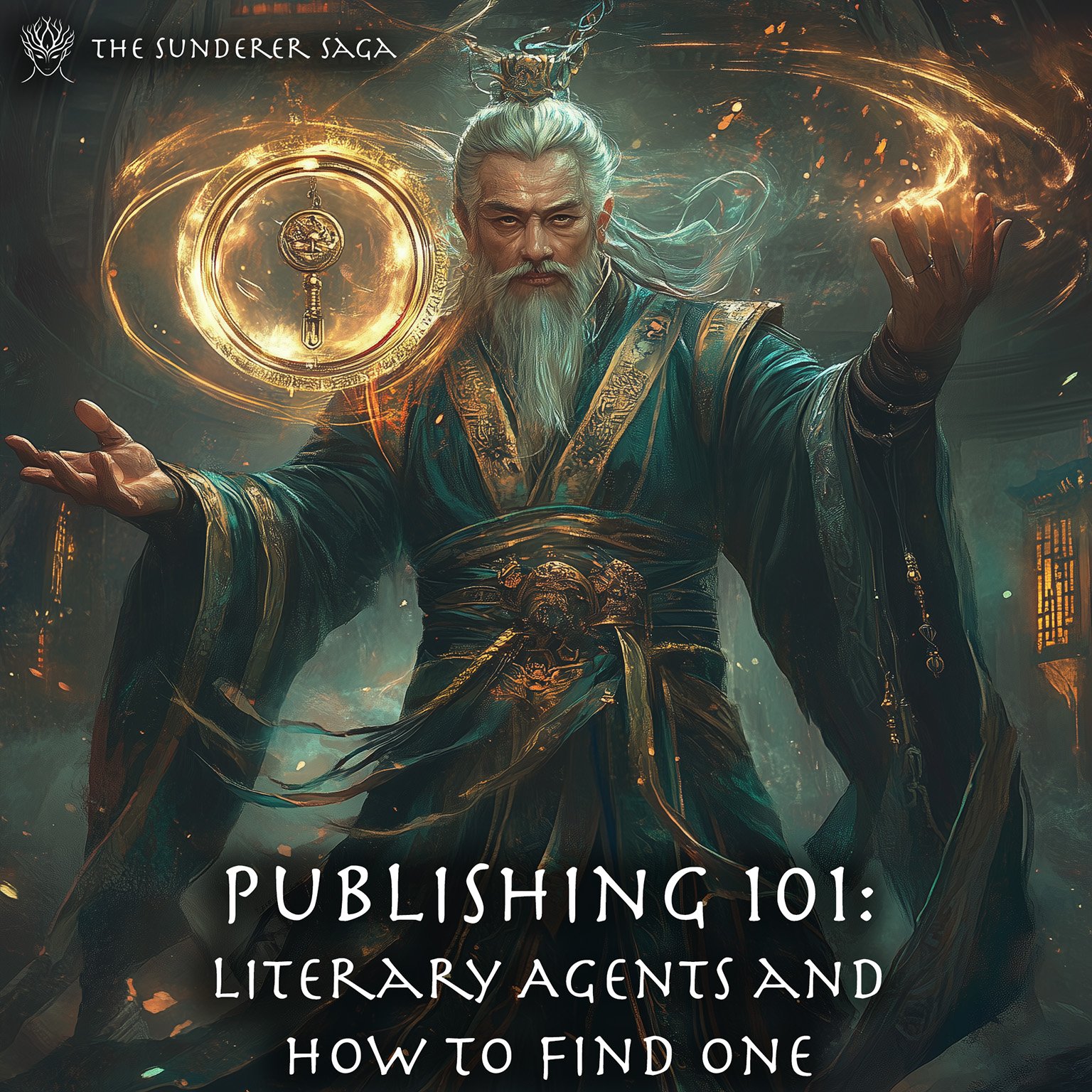Publishing 101: The Role of Literary Agents and How to Find One
For many aspiring authors, landing a literary agent feels like a major milestone. And in many ways, it is. A literary agent can be your key to unlocking the doors of traditional publishing, acting as both a guide and advocate throughout your publishing journey. But what exactly does a literary agent do, and how do you go about finding the right one for your book? Let’s break it down.
1. What is a Literary Agent?
A literary agent is a professional who represents authors and their works to publishers, film producers, and other entities interested in acquiring rights to a manuscript. Think of them as the bridge between you, the author, and the world of traditional publishing. They work on your behalf to secure book deals, negotiate contracts, and advocate for your best interests.
Key Roles of a Literary Agent:
- Manuscript Submission:
One of the most important roles of a literary agent is submitting your manuscript to publishers. Agents have established relationships with editors at publishing houses and know exactly which editors are looking for specific types of books. This increases the likelihood of your book being read by the right people.
- Negotiating Contracts:
When a publisher expresses interest in your book, your agent will step in to negotiate the best possible deal for you. This includes the advance payment, royalty rates, subsidiary rights (film, foreign, audiobook), and other contractual details. Agents are experienced negotiators who know what to look for and how to secure favorable terms.
- Career Guidance:
Beyond selling a single book, a good agent will help you plan your long-term career as an author. They’ll offer advice on future projects, help you navigate the industry, and support you in building a sustainable career in writing.
- Rights Management:
In addition to book deals, agents often handle the sale of subsidiary rights, such as film or television adaptations, translations, audiobook deals, and more. They ensure that these rights are sold separately, maximizing your earning potential across different markets.
- Industry Expertise:
The publishing industry is complex and constantly evolving. A literary agent stays up-to-date on industry trends, market demands, and shifts in the publishing landscape, which can be invaluable when planning your next steps.
2. Do You Need a Literary Agent?
If your goal is to be traditionally published with one of the major publishing houses—like Penguin Random House, HarperCollins, or Simon & Schuster—you almost certainly need a literary agent. These publishers rarely accept unsolicited submissions, meaning manuscripts sent directly from authors without representation are often overlooked.
However, if you’re aiming for a smaller, independent publisher, some of them are open to direct submissions. In this case, you may be able to get your foot in the door without an agent, but keep in mind that smaller publishers may not offer the same level of advance or distribution as larger houses. An agent can still help negotiate terms and look out for your best interests.
3. How to Find a Literary Agent
Finding a literary agent requires research, persistence, and patience. Not every agent will be the right fit for your book, and the process can take time. Here’s how to get started:
3.1. Research Literary Agents in Your Genre
Literary agents typically specialize in specific genres, such as fantasy, romance, or non-fiction. To find the right agent, start by researching agents who represent books in your genre. Look for agents who have sold books similar to yours, and pay attention to the clients they represent.
- Where to Find Agents:
Resources like Publishers Marketplace, QueryTracker, and Writers Digest are great starting points. Many agents also list their preferences and submission guidelines on their agency’s website. You can also check the acknowledgments section of books similar to yours—authors often thank their agents, providing you with potential leads.
3.2. Craft a Strong Query Letter
Once you’ve identified a list of potential agents, the next step is to pitch your book. This is typically done through a query letter, which is a one-page introduction to your book and yourself as an author. A good query letter includes:
- The Hook:
A brief, attention-grabbing description of your book that highlights its main premise and sets it apart from other books in the genre.
- The Summary:
A concise summary of your book, usually covering the protagonist, central conflict, and stakes. This should give the agent a sense of your book’s plot without giving away every detail.
- Your Bio:
A short paragraph about you as an author. Mention any relevant writing credentials, previous publications, or other experiences that contribute to your credibility as a writer.
- Personalization:
Tailor each query letter to the agent you’re submitting to. Mention why you’ve chosen to query them specifically—whether it’s because of their interest in your genre, their previous sales, or something you admire about their work.
3.3. Follow Submission Guidelines
Every literary agent has their own submission guidelines, and it’s crucial that you follow them to the letter. Some agents want only a query letter, while others may request sample chapters or a synopsis as well. Submitting your materials exactly as requested shows that you’re professional and attentive to detail.
3.4. Be Prepared for Rejections
The reality of finding a literary agent is that rejections are part of the process. Even if your book is amazing, it may not be the right fit for a particular agent. Don’t get discouraged by rejection letters—every author, even bestsellers, has received them. Keep submitting and refining your query based on feedback or additional research.
3.5. Consider Attending Writing Conferences
Literary conferences and workshops offer opportunities to meet agents in person, often through “pitch sessions” where you can present your book idea directly. These interactions can sometimes lead to representation, and they also provide valuable networking opportunities.
4. Red Flags to Watch For
Not all agents are created equal, and there are a few red flags to watch for during your search:
- Upfront Fees:
Legitimate agents don’t charge upfront fees. They make their money by taking a commission (typically 15%) from the sale of your book. If an agent asks for payment before representing you, walk away.
- Lack of Publishing Sales:
An agent who hasn’t sold any books, or has a poor track record of sales, may not have the industry connections needed to successfully represent you. Research their recent sales and clients before signing anything.
- Pushy Tactics:
Be wary of agents who pressure you to sign quickly or who don’t provide clear information about their process. A good agent will want to make sure the partnership is a good fit for both parties.
5. In Summary:
A literary agent is a valuable partner in navigating the complex world of traditional publishing. They submit your manuscript to publishers, negotiate deals, and provide long-term career support. Finding the right agent requires research, a compelling query letter, and persistence, but the rewards can be well worth the effort. With the right agent by your side, you’ll have a much better chance of securing a book deal and launching your writing career.

